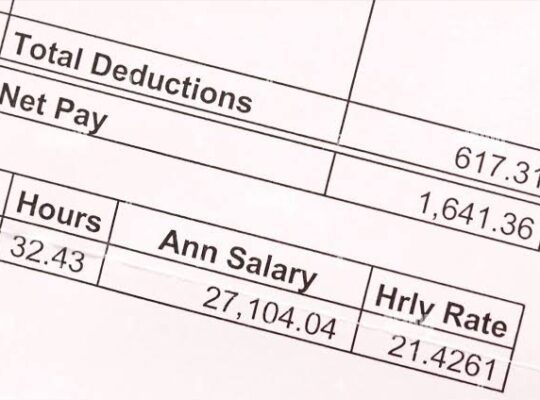
Managing personal finances effectively is crucial for a secure and prosperous future. One of the most efficient ways to take control of your money is by creating a budget. A quick and practical budget can be easily crafted using the 50/30/20 principle, providing a simple yet effective framework for allocating your income. This article will guide you through the steps of drafting such a budget and help you achieve financial stability.
Step 1: Calculate Your Net Income: To start off, determine your monthly net income, which is the amount you receive after taxes and other deductions. This is the foundation upon which you’ll base your budget.
Step 2: Implement the 50/30/20 Principle: The 50/30/20 principle suggests dividing your net income into three categories: Needs, Wants, and Savings. Allocate 50% of your income towards essential expenses (needs), 30% towards discretionary spending (wants), and 20% towards savings and debt repayment.
1. Needs (50%): Begin by identifying your necessary expenses. These can include rent/mortgage payments, utilities, groceries, transportation costs, insurance, and minimum debt repayments. Adjust this percentage to reflect your unique situation, but ensure that your necessary expenses fall within the 50% threshold.
2. Wants (30%): This category covers non-essential expenses that enhance your lifestyle and provide enjoyment. Entertainment, dining out, travel, subscription services, and other discretionary spending fall under this category.
3. Savings and Debt Repayment (20%): Cultivating healthy financial habits requires setting aside a portion of your income for future financial goals and debt repayment. Aim to save at least 20% of your net income, which can include contributions to an emergency fund, retirement savings, and other investment options. If you have outstanding debt, allocate a portion of this 20% to repayment until it is cleared.
Step 3: Prioritize Savings and Debt Repayment: Saving and managing debt are essential components of financial well-being. Consider the following tips to effectively prioritize these aspects within your budget:
1. Emergency Fund: Begin by saving for a rainy day. Set aside a portion of your 20% allocation for emergencies, aiming to accumulate three to six months’ worth of living expenses.
2. Retirement Savings: South Africa offers various retirement saving options, such as pension funds and retirement annuities. Consider contributing a portion of your 20% towards these vehicles, especially if your employer offers matching contributions.
3. Debt Repayment: Focus on reducing high-interest debt strategically. Start by paying off debt with the highest interest rates first, such as credit card debt, personal loans, or retail accounts. Continue allocating a portion of your 20% towards debt repayment until you are debt-free.
Step 4: Monitor and Adjust: Creating a budget is not a one-time affair. It requires regular monitoring and adjustments as circumstances change. Here are some guidelines to keep your budget on track:
1. Regular Review: Analyze your spending habits frequently to ensure you stay within your allocated budget percentages. Use budgeting apps or spreadsheets to track your income and expenses.
2. Cut Back on Discretionary Spending: If you find you’re overspending in the wants category, consider trimming expenses by finding alternatives or reducing expenditure in non-essential areas.
3. Track Progress: Regularly monitor your savings and debt repayment progress. Celebrate milestones and stay motivated by acknowledging the positive strides you are making towards reaching your financial goals.
Drafting a quick and practical budget using the 50/30/20 principle empowers individuals in South Africa to take control of their financial future. By allocating 50% to needs, 30% to wants, and 20% to savings and debt repayment, you establish a clear structure for budgeting. Regularly reviewing and adjusting your budget ensures financial stability and provides a solid foundation for growth and prosperity in the South African context. Start today and take the first step towards a brighter financial future.






